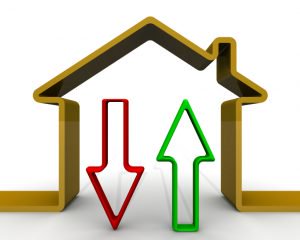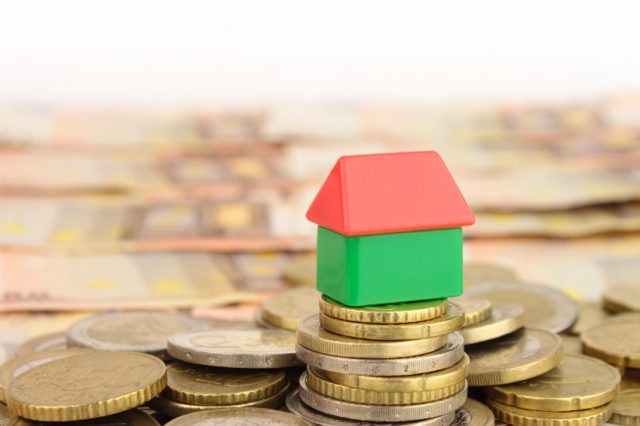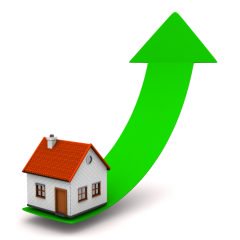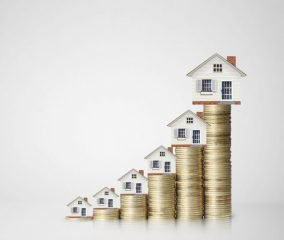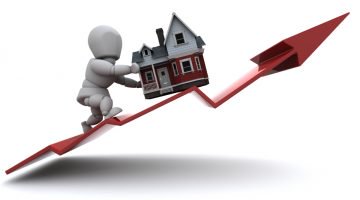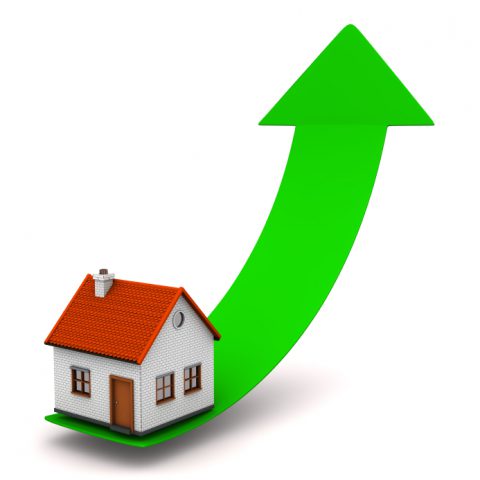The housing market is booming once more and prices are expected to surge during the second half of the year, as buyers and sellers are encouraged by the Conservative win.
Land Registry recently reported that prices in England and Wales are just £1,200 off the historic high of 2007. Economists are now forecasting further rises in the coming months.
The annual rate of price growth had reached its lowest level for 14 months, at 5.1%. But this could soon take off again. Property Economist at Capital Economics, Matthew Pointon, says that with housing stock at a record low, “the conditions are in place for further price gains this year.” He adds: “The low point for the annual rate of house price inflation is now in sight.”
Chief Economist at F&C Investments, Steven Bell, says that competition between mortgage lenders, alongside higher incomes and falling arrears, are boosting the amount of home loans and driving up prices.
“In the UK housing market, the global financial crisis seems a long time ago,” he comments.

Property Prices Expected to Surge in Last Half of the Year
Land Registry data is considered the most accurate as figures reflect completed transactions, not asking prices. It found that prices increased by 0.9% in April, following a 0.8% decrease in March.
Approaching the general election, the average property price reached £179,817, around £9,000 higher than the previous year and almost hitting the November 2007 high of £181,014. In London, the average price rose £47,000 in 12 months with prices 10% higher in 28 of the 32 London boroughs.
Managing Director of Garrington Property Finders, Jonathan Hopper, says that it is “encouraging to see how well prices held up in April”, despite the uncertainty about new taxes.
Labour’s proposed mansion tax affected the high-end market. Land Registry revealed a 30% drop in the amount of sales of these homes in February compared with February 2014.
However, Hopper notes: “In the weeks since the election, the market has quickly become much more free-flowing, with energised buyers and supply improving dramatically. Buyer demand and confidence are robust – both bode well for a strong summer moving season.”1
Glentree estate agents sell luxury homes in North London. Trevor Abrahmsohn says that political uncertainty discouraged buyers in his market: “The mansion tax, the threat to nom-doms and the anti-business rhetoric from Labour made it very difficult.
“Since the election, people feel there are no restrictions again. That’s good for everyone in the UK.”1
Before the Land Registry data was published, Bell said that he thought the Bank of England (BoE) would wait until the end of the year before increasing interest rates, but that it could witness surging prices.
“This will confront the BoE with a dilemma: whether to raise base rates early, or risk yet another house price boom,” he explains. “A strong housing market is both an indicator that financial conditions are too loose and a mechanism by which those loose conditions feed through into the rest of the economy.”1
The data also revealed surges in price in some regions of the UK. Find out where: /which-is-britains-fastest-growing-region/.
Chief UK Economist at IHS Global Insight, Howard Archer, raised his predictions for 2015 growth from 5% to 6%, “partly due to the increased upward impact on prices coming from a lack of properties on the market.”
He continues: “We also suspect that the housing market will benefit from reduced uncertainty following the decisive general election result.”1
Pointon says that is possible that more vendors will come forward now that the election result is clear, but he says this will not ease price rises, as “any new supply is likely to be matched by demand.”1
Residential Research Director at Hamptons International, Fionnuala Earley, says a post-election boom is normal: “Our research over the last eight elections shows that there is always a bounce in activity after the vote, making up for a slowdown in the previous six months and some of this will feed into price growth.”
However, Earley insists it is “overblown to say that there is another dangerous house price boom on the way.”1
Housing charity Shelter says that the £9,000 rise in house prices means goals have moved “yet again” for those saving to buy a home.
Chief Executive Campbell Robb comments: “With over 80% of homes on the market in England unaffordable for a typical family – even if they have a deposit – for many, a home of their own has gone from possibility to pipe-dream.”1
1 http://www.theguardian.com/business/2015/jun/02/uk-house-prices-surge-2015-election
